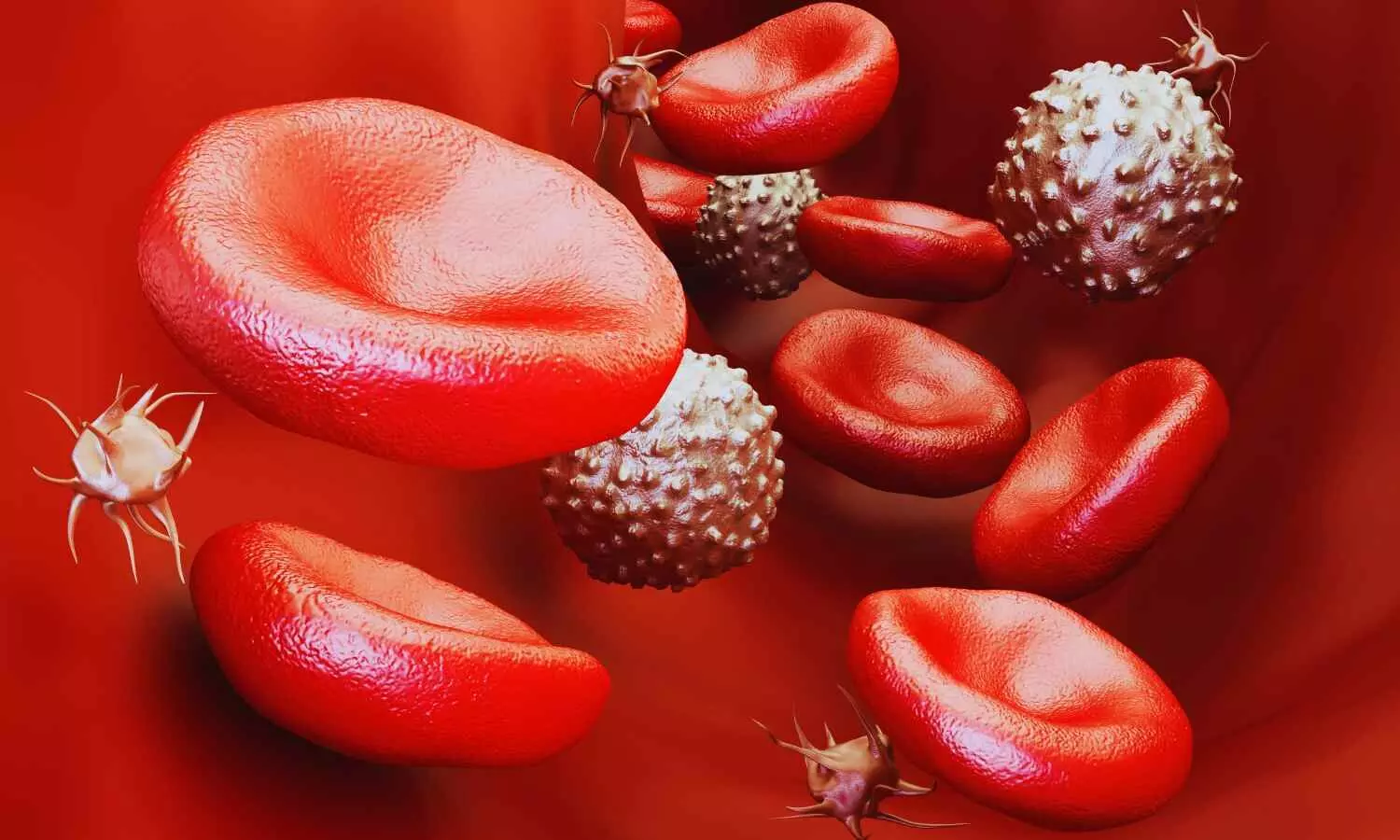A breath test could help us detect blood cancers, reveals study
- byDoctor News Daily Team
- 02 November, 2025
- 0 Comments
- 0 Mins

Molecules exhaled in the breath may help detectblood cancer, according to new research from Queen Mary University of London. The findings could enable the development of a bloodcancerbreathalyser, providing a rapid, low-cost way to detect disease. This tool may be particularly useful for areas with limited access to specialist equipment or expertise. In the UK, around 40,000 people are diagnosed with blood cancer and around 16,000 people die of the disease each year. Diagnosing blood cancers can be challenging as early symptoms are often non-specific, such as fatigue and weight loss. Diagnosis usually relies on specialised tests such as imaging scans or biopsies, which can be expensive or difficult to access in some regions. More rapid, low-cost and non-invasive test options could help us diagnose blood cancers earlier, when treatment has a higher chance of success. They could also help monitor the disease and track how well treatments are working. “Previous studies have shown the value of using breath tests to detectlung cancer. But no one had ever investigated whether blood cancer cells release molecules that pass into the breath, despite the purpose of breathing being to exchange substances between the blood and the breath,” comments Dr John Riches, Clinical Reader at Barts Cancer Institute, Queen Mary University of London. In a study published in HemaSphere, Dr Riches and his team demonstrate for the first time that a breath test could help us detect blood cancers. Using Breath Biopsy®, a breathalyser technology developed by Owlstone Medical, the team collected exhaled breath from 46 people with blood cancer and 28 healthy people. They then analysed the chemical fingerprint of the breath, searching for tens of thousands of molecular fragments using a technique called mass spectrometry. The researchers showed that people with high-grade lymphoma, an aggressive type of blood cancer that affects the lymphatic system, have significantly increased levels of certain molecules in their breath compared with healthy people. These include molecules that are produced when fats in our cells are damaged by a process called oxidative stress, which is known to play a role in the development of cancer. The simplicity, affordability and portability of breathalyser devices compared with conventional diagnostic methods also means they could be used anywhere in the world. This could particularly benefit low-resource settings that lack access to scanners or specialist histology staff and facilities, such as in rural areas or developing countries. “In future, rather than sending patients away for costly scans and waiting for test results, doctors may be able to conduct a quick breath test in their clinic room and potentially have the results within a few seconds.” Dr Riches comments. Further research is now needed to enable the development of an effective blood cancer breath test. The team will work to better understand the biology governing the production of the airborne molecules detected in patients’ breath, and which specific types of lymphoma are most reliably detectable using this method. This will aid the development of more specific and sensitive tests, which the researchers hope could shorten the current 10 minutes required for breath collection to just a few seconds. Lotte C. A. Stiekema, Hsuan Chou, Amy Craster, Bela Wrench, Katiuscia Bianchi, Paolo Gallipoli, Jeffrey K. Davies, John G. Gribben, John C. Riches, Analysis of volatile organic compounds in exhaled breath of blood cancer patients identifies products of lipid peroxidation as biomarkers for lymphoma detection, HemaSphere, https://doi.org/10.1002/hem3.70168.
Disclaimer: This website is designed for healthcare professionals and serves solely for informational purposes.
The content provided should not be interpreted as medical advice, diagnosis, treatment recommendations, prescriptions, or endorsements of specific medical practices. It is not a replacement for professional medical consultation or the expertise of a licensed healthcare provider.
Given the ever-evolving nature of medical science, we strive to keep our information accurate and up to date. However, we do not guarantee the completeness or accuracy of the content.
If you come across any inconsistencies, please reach out to us at
admin@doctornewsdaily.com.
We do not support or endorse medical opinions, treatments, or recommendations that contradict the advice of qualified healthcare professionals.
By using this website, you agree to our
Terms of Use,
Privacy Policy, and
Advertisement Policy.
For further details, please review our
Full Disclaimer.
Tags:
Recent News
Substance use peaks among medicos- 36 percent at I...
- 03 November, 2025
SKIMS intern doctor dies after contracting infecti...
- 03 November, 2025
Himachal notifies Resident doctor policy 2025
- 02 November, 2025
Pfizer files lawsuit against Metsera, its Director...
- 02 November, 2025
Daily Newsletter
Get all the top stories from Blogs to keep track.


0 Comments
Post a comment
No comments yet. Be the first to comment!